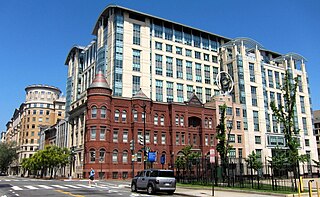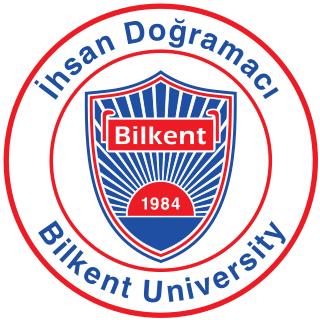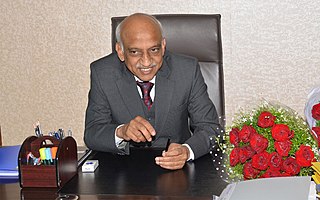
Demographic features of the population of Turkey include population density, ethnicity, education level, health of the populace, economic status, religious affiliations and other aspects of the population.

The National Academies of Sciences, Engineering, and Medicine (NASEM), also known as the National Academies, is a congressionally chartered organization that serves as the collective scientific national academy of the United States. The name is used interchangeably in two senses: (1) as an umbrella term or parent organization for its three sub-divisions that operate as quasi-independent honorific learned society member organizations known as the National Academy of Sciences (NAS), the National Academy of Engineering (NAE), and the National Academy of Medicine (NAM); and (2) as the brand for studies and reports issued by the unified operating arm of the three academies originally known as the National Research Council (NRC). The National Academies also serve as public policy advisors, research institutes, think tanks, and public administration consultants on issues of public importance or on request by the government.

The term Spaceguard loosely refers to a number of efforts to discover, catalogue, and study near-Earth objects (NEO), especially those that may impact Earth.

The Santa Fe Institute (SFI) is an independent, nonprofit theoretical research institute located in Santa Fe, New Mexico, United States and dedicated to the multidisciplinary study of the fundamental principles of complex adaptive systems, including physical, computational, biological, and social systems. The institute is ranked 24th among the world's "Top Science and Technology Think Tanks" and 24th among the world's "Best Transdisciplinary Research Think Tanks" according to the 2020 edition of the Global Go To Think Tank Index Reports, published annually by the University of Pennsylvania.

Islam is the second largest religion in the Netherlands, after Christianity, and is practised by 5% of the population according to 2018 estimates. The majority of Muslims in the Netherlands belong to the Sunni denomination. Many reside in the country's four major cities: Amsterdam, Rotterdam, The Hague and Utrecht.

Bilkent University is a non-profit private university located in Ankara, Turkey. It was founded by İhsan Doğramacı, the first president of The Council of Higher Education and the head of the prominent Doğramacı family, with the aim of creating a center of excellence in higher education and research in 1984. It has constantly been ranked among the top Turkish universities since its establishment. In 2011, it was ranked 112th in the world by The World University Rankings. Bilkent University was modeled after Harvard University and was the first non-profit private university established in the country. The name Bilkent is an abbreviation of bilim kenti: Turkish for "city of science".
The Committee on Space Research (COSPAR) was established on October 3, 1958 by the International Council for Scientific Unions (ICSU) and its first chair was Hildegard Korf Kallmann-Bijl. Among COSPAR's objectives are the promotion of scientific research in space on an international level, with emphasis on the free exchange of results, information, and opinions, and providing a forum, open to all scientists, for the discussion of problems that may affect space research. These objectives are achieved through the organization of symposia, publication, and other means. COSPAR has created a number of research programmes on different topics, a few in cooperation with other scientific Unions. The long-term project COSPAR international reference atmosphere started in 1960; since then it has produced several editions of the high-atmosphere code CIRA. The code "IRI" of the URSI-COSPAR working group on the International Reference Ionosphere was first edited in 1978 and is yearly updated.

Turkish people or Turks are the largest Turkic people who speak various dialects of the Turkish language and form a majority in Turkey and Northern Cyprus. In addition, centuries-old ethnic Turkish communities still live across other former territories of the Ottoman Empire. Article 66 of the Turkish Constitution defines a "Turk" as: "Anyone who is bound to the Turkish state through the bond of citizenship." While the legal use of the term "Turkish" as it pertains to a citizen of Turkey is different from the term's ethnic definition, the majority of the Turkish population are of Turkish ethnicity. The vast majority of Turks are Muslims and follow the Sunni and Alevi faith.

Türk Telekom is a state-owned Turkish telecommunications company. Türk Telekom was separated from Turkish Post (PTT) in 1995.

The Scientific and Technological Research Institution of Turkey is a national agency of Turkey whose stated goal is to develop "science, technology and innovation" (STI) policies, support and conduct research and development, and to "play a leading role in the creation of a science and technology culture" in the country.

The Air Force Technical Applications Center (AFTAC), based at Florida's Patrick Space Force Base, is an Air Force surveillance organization assigned to the Sixteenth Air Force. Its mission is to monitor nuclear treaties of all applicable signatory countries. This is accomplished using seismic, hydroacoustic and satellite-detection systems alongside ground based and airborne materials collection systems.

Turkish Americans or American Turks are Americans of ethnic Turkish origin. The term "Turkish Americans" can therefore refer to ethnic Turkish immigrants to the United States, as well as their American-born descendants, who originate either from the Ottoman Empire or from post-Ottoman modern nation-states. The majority trace their roots to the Republic of Turkey, however, there are also significant ethnic Turkish communities in the US which descend from the island of Cyprus, the Balkans, North Africa, the Levant and other areas of the former Ottoman Empire. Furthermore, in recent years there has been a significant number of ethnic Turkish people coming to the US from the modern Turkish diaspora, especially from the Turkish Meskhetian diaspora in Eastern Europe and "Euro-Turks" from Central and Western Europe.

Turkey, officially the Republic of Türkiye, is a country in Southeast Europe and West Asia. It is mainly on the Anatolian Peninsula in West Asia, with a small portion called East Thrace on the Balkan Peninsula in Southeast Europe. It borders the Black Sea to the north; Georgia to the northeast; Armenia, Azerbaijan, and Iran to the east; Iraq to the southeast; Syria and the Mediterranean Sea to the south; the Aegean Sea to the west; and Greece and Bulgaria to the northwest. Cyprus is off the south coast. Most of the country's citizens are ethnic Turks, while Kurds are the largest ethnic minority. Ankara is Turkey's capital and second-largest city, while Istanbul is its largest city and economic and financial centre, as well as the largest city in Europe.
F-Type-Prisons, officially called F-type High Security Closed Institutions for the Execution of Sentences, are high-security prisons designated by Turkish Law 5275 on the Execution of Sentences.

The Organization of Turkic States (OTS), formerly called the Turkic Council or the Cooperation Council of Turkic Speaking States, is an intergovernmental organization comprising prominent independent Turkic countries: Azerbaijan, Kazakhstan, Kyrgyzstan, Turkey and Uzbekistan. It is an intergovernmental organization whose overarching aim is promoting comprehensive cooperation among Turkic-speaking states. First proposed by Kazakh President Nursultan Nazarbayev in 2006, it was founded on 3 October 2009, in Nakhchivan. The General Secretariat is in Istanbul.
Turks in Qatar form one of the country's smaller minority groups. When Turkish labour migration to Germany subsided in the mid-1970s, Turkish migrants began to migrate to Arab oil countries, especially Libya, Saudi Arabia and Iraq as well as Qatar. The Turkish government supported labour migration via Turkish construction companies in the Gulf Cooperation Council states. Over 90% of Turkish immigrants in Qatar are employed.
A post-detection policy (PDP), also known as a post-detection protocol, is a set of structured rules, standards, guidelines, or actions that governmental or other organizational entities plan to follow for the "detection, analysis, verification, announcement, and response to" confirmed signals from extraterrestrial civilizations. Though no PDPs have been formally and openly adopted by any governmental entity, there is significant work being done by scientists and nongovernmental organizations to develop cohesive plans of action to utilize in the event of detection. The most popular and well known of these is the "Declaration of Principles Concerning Activities Following the Detection of Extraterrestrial Intelligence", which was developed by the International Academy of Astronautics (IAA), with the support of the International Institute of Space Law. The theories of PDPs constitute a distinct area of research but draw heavily from the fields of SETI, METI, and CETI.

Aluru Seelin Kiran Kumar is an Indian space scientist and former chairman of the Indian Space Research Organisation, having assumed office on 14 January 2015. He is credited with the development of key scientific instruments aboard the Chandrayaan-1 and Mangalyaan space crafts. In 2014, he was awarded the Padma Shri, India's fourth highest civilian award, for his contributions to the fields of science and technology. Kiran Kumar previously served as Director of Ahmedabad Space Applications Centre.

Ayşe Ören is a multidisciplinary artist, architect, and designer. Her works are on the contemporary and conceptual side, including abstract art, sculpture, furniture and product design, and graphic design. Educated as an architect, her broad interests span such fields as history, philosophy and psychology, and space architecture.

The Center for Life Detection (CLD) is a collaboration among scientists and technologists from NASA’s Ames Research Center and Goddard Spaceflight Center, which formed in 2018 to support the planning and implementation of missions that will seek evidence of life beyond Earth. CLD is supported by NASA’s Planetary Science Division and is one of three core teams in the Network for Life Detection. CLD’s perspectives on life detection science and technology development are summarized in “Groundwork for Life Detection”, a white paper submitted to and cited in the 2023-2032 Planetary Science and Astrobiology Decadal Survey.















